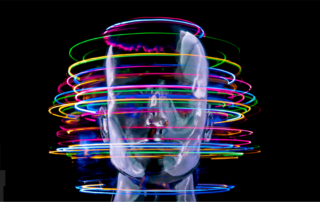Latest Insights
Make or Break: The Behavioral Science of Innovation
Successful innovation requires far more than a market gap, a visionary, funding, and new technology. Innovation is a behavioral process from start to finish. It relies on the decision-making processes and behaviors of both producers and consumers, as well as the surrounding support system. Behavioral science, the science of how we make decisions, has invaluable practical insights for innovation on all fronts.
Dark Patterns Powered by Machine Learning: The Role of Behavioral Science Ethics
Dark patterns, the “sludges” of the digital world, aim to distort consumers’ decision-making process. Dark patterns powered by machine learning represent an even higher threat, in that they don’t just trick users to do something, but alter human behavior in a durable, undetectable, and indefensible way. This article examines the main issues linked to machine learning powered dark patterns and seeks to outline possible solutions.
Eco-labels Prompt Diners to Make More Sustainable Choices
Meat and dairy production causes considerable environmental damage, which most consumers are unaware of. Is the answer to this eco-labeling, where consumers are provided with a sustainability rating on product packing? Would consumers welcome this information, and would it promote consumers to make sustainable choices?
Can Behavioural Insights Help Us Improve Our Relationship With Ourselves?
While it’s true that self-confidence partially comes from the feeling that the people around us approve of us (something we can’t control), what we can control is how much emphasis we place on others’ opinions. Several of the thoughts that undermine - if not entirely diminish - our self-confidence come from systematic errors in judgement. Despite being commonly applied to economic decision-making, behavioural insights may explain how we, at times harshly and irrationally, judge ourselves.
A Practitioner’s Guide to Leveraging Behavioral Insights
Many behavioral interventions offer win-wins to firms, governments, and other stakeholders. However, research has shown that experts do a poor job predicting the effectiveness of behavioral interventions. This article aims to help calibrate forecasts of an intervention's effectiveness. I outline six steps to help assess whether a published effect is likely to be useful in practice.
More Conversions With Social Media Targeting: Lessons From Behavioral Biology
Targeting the right customers with the right message is one of the most established strategic goals in marketing. However, traditional approaches to targeting can often end up being ineffective and sometimes even harmful to brands. In this article, we discuss a framework for social media targeting based on insights from behavioral biology.







